
Opensource.com
The Open Organization reading list
Working the open source way always involves standing on the shoulders of giants. Author Jim Whitehurst cites more than 25 books in The Open Organization, and 10 are featured in this reading list. If you enjoyed The Open Organization, then you're sure to love the books already in conversation with it.
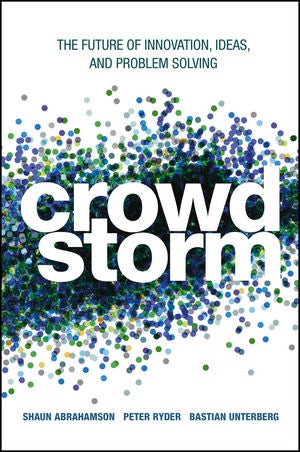 Crowdstorm
Crowdstorm
by Shaun Abrahamson, Peter Ryder, and Bastian Unterberg
From Wiley:
Successful organizations are constantly searching for new ideas. Historically, organizations have looked to their employees and select partners. They have used techniques like brainstorming to gather and evaluate ideas. However, in today’s market, talent and new ideas can be found everywhere.
The Internet has enabled organizations to greatly expand their searches far beyond their four walls. Instead of ten or one hundred people, organizations from startups to Fortunate 500 firms can work with thousands or tens of thousands to discover and assess many, many more ideas (as well as prototypes, partners and people).
But how do you organize so many people and ideas to get the best results?
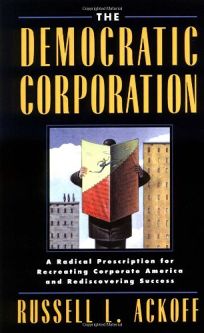 The Democratic Corporation
The Democratic Corporation
by Russel L. Ackoff
From Amazon:
We all know that American business needs fixing, and there is no shortage of prescriptions: imitate the Japanese, or follow the example of successful firms, or practice right-sizing. But these approaches do not work very well, says Russell Ackoff, because they only attack the problem piecemeal—and it is the entire system of American business that is flawed.
To give managers insight into the concept of organizations, Ackoff shows how they have been viewed since the Renaissance: first as machines, later as organisms, and today as social systems. As social systems, companies produce and distribute wealth and raise our standard of living. They are also responsible for facilitating and encouraging the development of the larger systems that contain them and all their stakeholders. The quality of worklife within an organization is key. Work has to be challenging and enjoyable if workers are to give it their full commitment, and Ackoff outlines major ways to achieve this goal.
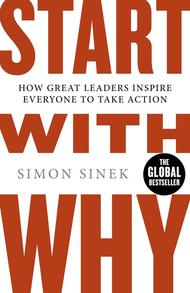 Start with Why
Start with Why
by Simon Sinek
Why do you do what you do?
Why are some people and organizations more innovative, more influential, and moer profitable than others? Why do some command greater loyalty from customers and employees alike? Even among the successful, why are so few able to repeat their success over and over?
People like Martin Luther King Jr., Steve Jobs, and the Wright Brothers might have little in common, but they all started with why. It was their natural ability to start with why that enabled them to inspire those around them and to achieve remarkable things.
In studying the leaders who've had the greatest influence in the world, Simon Sinek discovered that they all think, act, and communicate in the exact same way — and it's the complete opposite of what everyone else does. Sinek calls this powerful idea The Golden Circle, and it provides a framework upon which organizations can be built, movements can be lead, and people can be inspired. And it all starts with WHY.
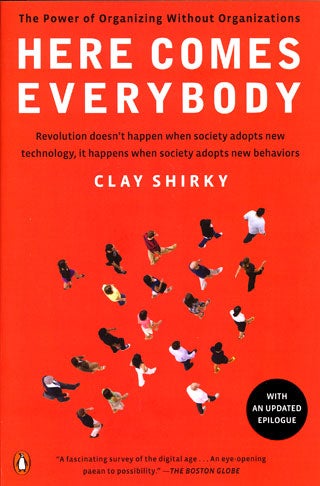 Here Comes Everybody
Here Comes Everybody
by Clay Shirky
From Amazon:
With accelerating velocity, our age's new technologies of social networking are evolving, and evolving us, into new groups doing new things in new ways, and old and new groups alike doing the old things better and more easily. You don't have to have a MySpace page to know that the times they are a changin'. Hierarchical structures that exist to manage the work of groups are seeing their raisons d'tre swiftly eroded by the rising technological tide. Business models are being destroyed, transformed, born at dizzying speeds, and the larger social impact is profound.
Shirky's assessment of the impact of new technology on the nature and use of groups is marvelously broad minded, lucid, and penetrating; it integrates the views of a number of other thinkers across a broad range of disciplines with his own pioneering work to provide a holistic framework for understanding the opportunities and the threats to the existing order that these new, spontaneous networks of social interaction represent.
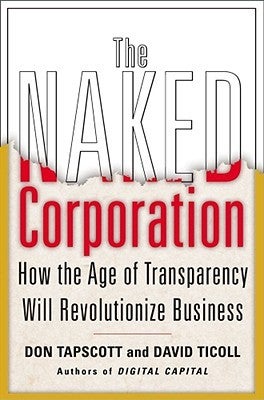 The Naked Corporation
The Naked Corporation
by Don Tapscott and David Ticoll
From Amazon:
If you have to be naked, you had better be buff. We are entering an extraordinary age of transparency, where businesses must for the first time make themselves clearly visible to shareholders, customers, employees, partners, and society. Financial data, employee grievances, internal memos, environmental disasters, product weaknesses, international protests, scandals and policies, good news and bad; all can be seen by anyone who knows where to look. Welcome to the world of the naked corporation. Transparency is revolutionizing every aspect of our economy and its industries and forcing firms to rethink their fundamental values.
Drawing on such examples as Chiquita's total turnaround on matters of ethics, to Shell Oil's reinvention of itself as an environmentally focused business, to Johnson & Johnson's longstanding and carefully nurtured reputation as a company worthy of trust—as well as little-known examples from pharmaceuticals, insurance, high technology, and financial services—Tapscott and Ticoll offer invaluable advice on how to lead the new age, rather than simply react to it.
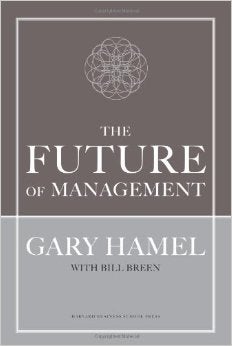 The Future of Management
The Future of Management
by Gary Hamel
From Harvard Business Review:
What fuels long-term business success? Not operational excellence, technology breakthroughs, or new business models, but management innovation—new ways of mobilizing talent, allocating resources, and formulating strategies. Through history, management innovation has enabled companies to cross new performance thresholds and build enduring advantages.
The management paradigm of the last century—centered on control and efficiency--no longer suffices in a world where adaptability and creativity drive business success. To thrive in the future, companies must reinvent management. Hamel explains how to turn your company into a serial management innovator.
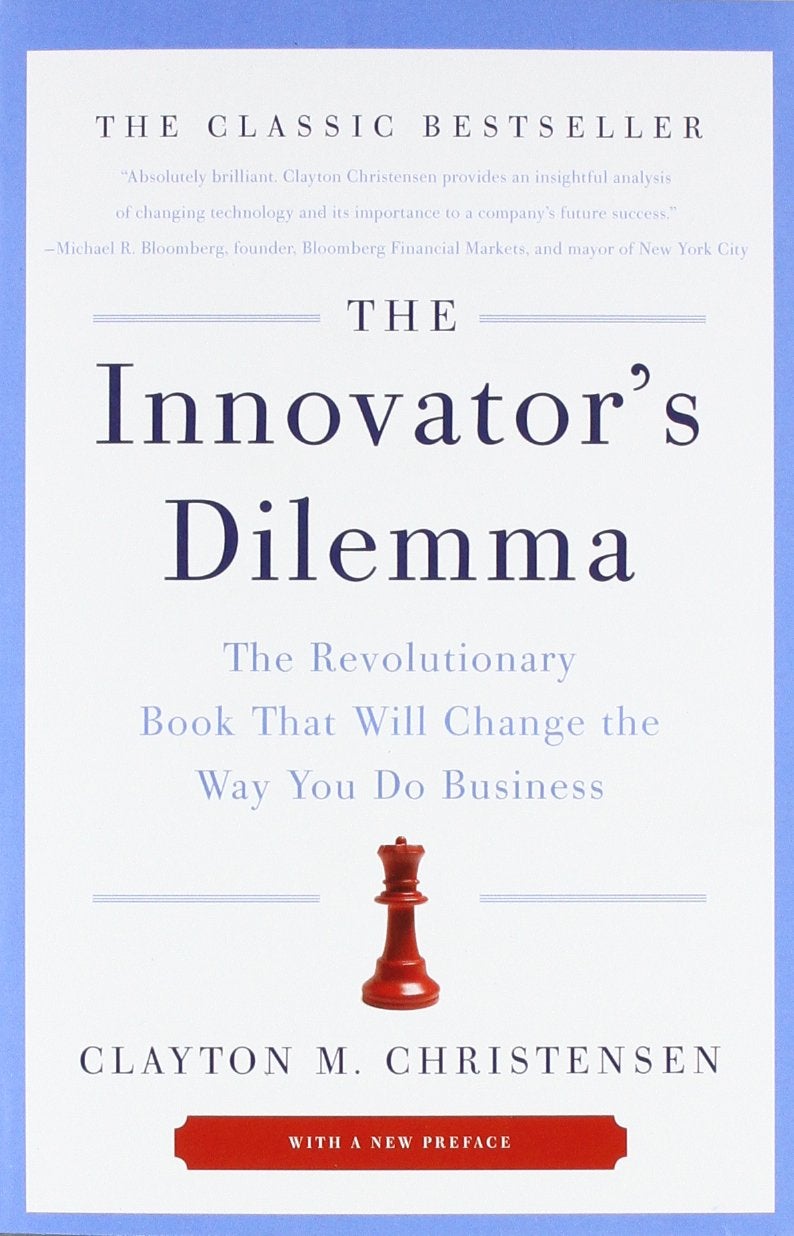 The Innovator's Dilemma
The Innovator's Dilemma
by Clayton M. Christensen
This book takes the radical position that great companies can fail precisely because they do everything right.
It demonstrates why outstanding companies that had their competitive antennae up, listened astutely to customers, and invested aggressively in new technologies still lost their market leadership when confronted with disruptive changes in technology and market structure.
And it tells how to avoid a similar fate.
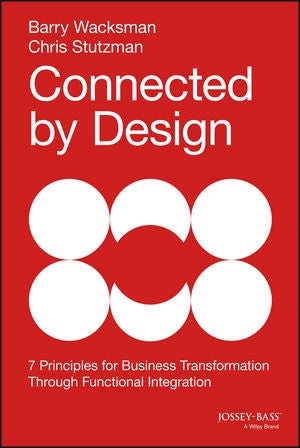 Connected by Design
Connected by Design
by Barry Wacksman and Chris Stutzman
From Wiley:
In a world of fierce global competition and rapid technological change, traditional strategies for gaining market share and achieving efficiencies no longer yield the returns they once did. How can companies drive consumer preference and secure sustainable growth in this digital, social, and mobile age?
The answer is through functional integration. Some of the world's most highly valued companies—including Amazon, Apple and Google—have harnessed this new business model to build highly interactive ecosystems of interrelated products and digital services, gaining new levels of customer engagement. Functional integration offers forward-looking brands a unique competitive edge by using transformative digital technologies to deliver high-value customer experiences, generate repeat business, and unlock lucrative new business-to-business revenue streams.
Barry Wacksman and Chris Stutzman identify seven principles companies must follow in order to create and deliver new value for customers and capture new revenues.
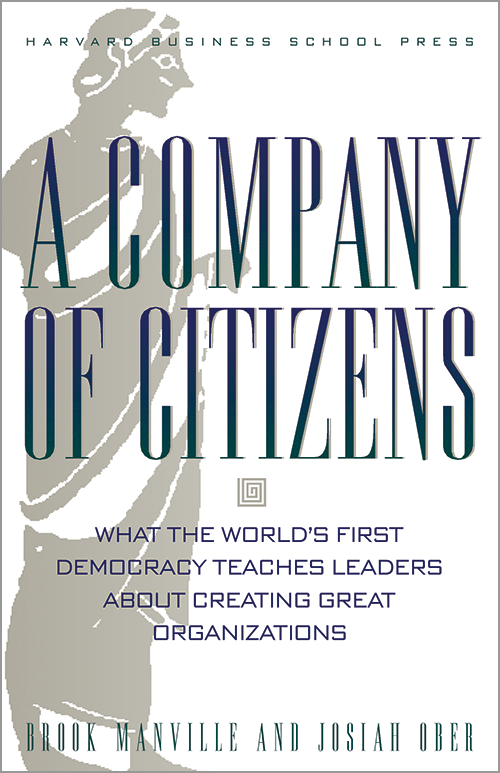 A Company of Citizens
A Company of Citizens
by Brook Manville and Josiah Ober
From Amazon:
The "knowledge revolution" is widely accepted, but strategic leaders now talk of the logical next step: the human capital revolution and the need to manage knowledgeable people in an entirely different way. The organization of the future must be not only nimble and flexible but also self-governing and values-driven. But what will this future organization look like? And how will it be led?
The authors argue that ancient Athenian democracy was an ingenious solution to organizing human capital through the practice of citizenship. That ancient solution holds profound lessons for today's forward-thinking managers: They must reconceive today's "employees" as "citizens."
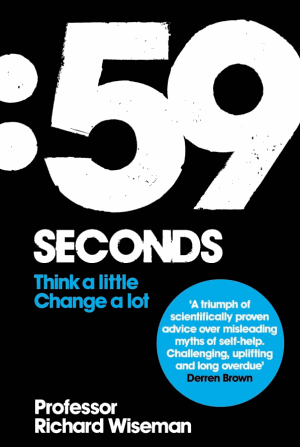 59 Seconds
59 Seconds
by Richard Wiseman
Richard Wiseman has been troubled by the realization that the self-help industry often promotes exercises that destroy motivation, damage relationships, and reduce creativity: the opposite of everything it promises.
From mood to memory, persuasion to procrastination, resilience to relationships, Wiseman outlines the research supporting the new science of "rapid change" and, with clarity and infectious enthusiasm, describes how these quirky, sometimes counterintuitive techniques can be effortlessly incorporated into your everyday life. Or, as he likes to say: "Think a little, change a lot."
Additional open source reads
Interested in learning more about open source and the open source way? We recommend the following reads.
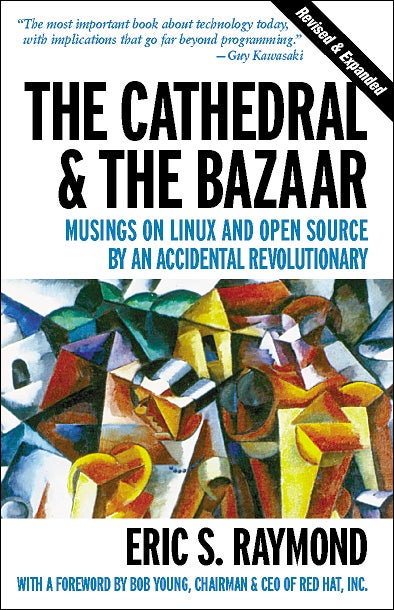 The Cathedral & the Bazaar
The Cathedral & the Bazaar
by Eric S. Raymond
From O'Reilly:
Open source provides the competitive advantage in the Internet Age. This revolutionary model for collaborative software development is being embraced and studied by many of the biggest players in the high-tech industry, from Sun Microsystems to IBM to Intel.
Already, billions of dollars have been made and lost based on the ideas in this book. Its conclusions will be studied, debated, and implemented for years to come.
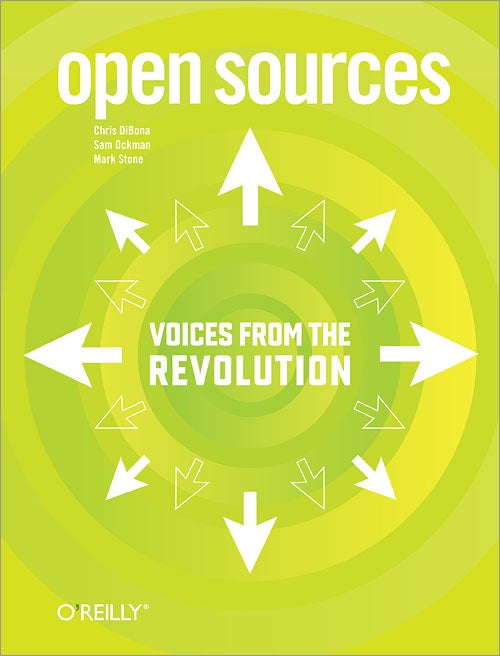 Open Sources
Open Sources
by Chris DiBona and Sam Ockman
From O'Reilly:
Freely available source code, with contributions from thousands of programmers around the world: this is the spirit of the software revolution known as open source.
Open source has grabbed the computer industry's attention. As enterprises realize the power of the open-source development model, open source is becoming a viable mainstream alternative to commercial software. The essays in this volume offer insight into how the open source movement works, why it succeeds, and where it is going. The contributors here have been the leaders in the open source arena.
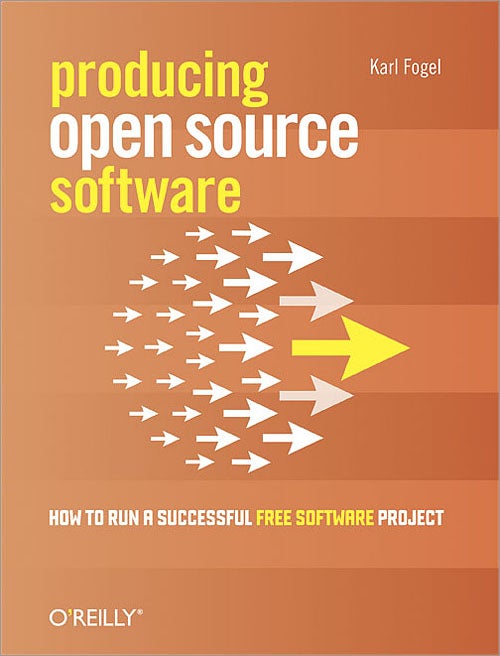 Producing Open Source Software
Producing Open Source Software
by Karl Fogel
From O'Reilly:
The corporate market is now embracing free, open source software like never before, as evidenced by the recent success of the technologies underlying LAMP (Linux, Apache, MySQL, and PHP). Each is the result of a publicly collaborative process among numerous developers who volunteer their time and energy to create better software.
The book tackles this very complex topic by distilling it down into easily understandable parts. Starting with the basics of project management, it details specific tools used in free software projects, including version control, IRC, bug tracking, and Wikis. Author Karl Fogel, known for his work on CVS and Subversion, offers practical advice on how to set up and use a range of tools in combination with open mailing lists and archives. He also provides several chapters on the essentials of recruiting and motivating developers, as well as how to gain much-needed publicity for your project.
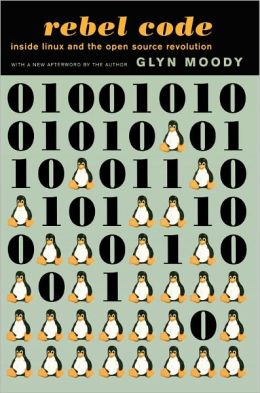 Rebel Code
Rebel Code
by Glyn Moody
From Amazon:
The open source saga has many fascinating chapters.
It is partly the story of Linus Torvalds, the master hacker who would become chief architect of the Linux operating system. It is also the story of thousands of devoted programmers around the world who spontaneously worked in tandem to complete the race to shape Linux into the ultimate killer app. With unprecedented access to the principal players, Moody has written a powerful tale of individual innovation versus big business.
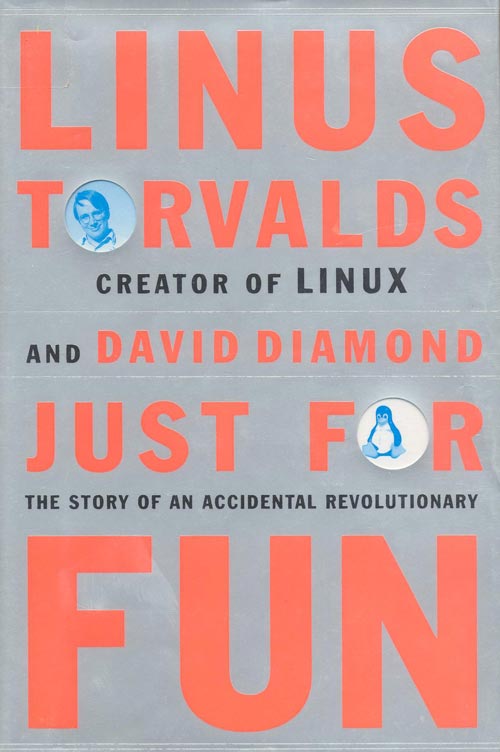 Just for Fun
Just for Fun
by Linus Torvalds and David Diamond
From Harper Collins:
Once upon a time Linus Torvalds was a skinny unknown, just another nerdy Helsinki techie who had been fooling around with computers since childhood. Then he wrote a groundbreaking operating system and distributed it via the Internet—for free. Today Torvalds is an international folk hero. And his creation Linux is used by over 12 million people as well as by companies such as IBM.
Now, in a narrative that zips along with the speed of e-mail, Torvalds gives a history of his renegade software while candidly revealing the quirky mind of a genius. The result is an engrossing portrayal of a man with a revolutionary vision, who challenges our values and may change our world.

